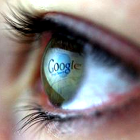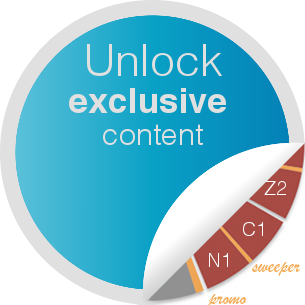When the radio industry unites, stations and listeners will benefit more from new technology. Like the Radioplayer, the result of a UK initiative to make online listening easy & fun.
How can radio stations make the most out of their content by using digital platforms? Radio futurologist James Cridland shared some ideas for this during his keynote at the German Lokalrundfunktage 2011. This first part focuses on the recently launched Radioplayer and explains why the iPad could be the next big thing for (Internet) radio.
Television global, radio village
Radio and TV have different ways of expressing themselves, based on their cultures:
- TV has many global brands (such as Discovery Channel, CNN or MTV), but radio has just a few worldwide media concepts (for example: NRJ)
- Popular TV content (like Lost, 24 or Glee) can be seen all over the world, but radio has just a few internationally syndicated shows (for example: American Top 40)
 Radio’s competition grabs attention
Radio’s competition grabs attention
“Generally we don’t act as a global industry; our industry is very inward looking”, says Cridland. “So it’s no wonder that in spite of audience figures continuing to be high, radio seems to be under threat by companies such as Spotify. Until we speak with one voice on behalf of radio, they will continue to grab the headlines.” Still he is positive about the future of radio, especially thanks to new technology that helps us make better better (use of) content.
Content production made easy
It’s become very easy to report live from events through smart phone recording, editing and broadcasting applications. We can involve listeners as reporters who record eyewitness stories or sound scapes while something is happening – especially useful when the station’s reporter isn’t at the scene yet. Audioboo lets people easily create recordings and send them to you. Some radio stations have added Audioboo to their own iPhone app that listeners can download.
 Radioplayer unites UK stations
Radioplayer unites UK stations
Finding stations and listening online should be a piece of cake, but it often isn’t, due to an inconsistent user experience. UK research shows that people avoid listening online for this reason. That’s why all public and private stations in the UK recently launched the Radioplayer. It looks and works the same way on every station’s website. According to Cridland, almost 6 million people have used the player in the first month alone.
UK radio industry benefits
The fact that even direct competitors share the same platform is good for everyone:
- Consistent radio experience drives more Internet radio traffic, from both existing listeners and people who discover stations by searching for format descriptions
- Manufacturers of TV’s, cars and mobile phones are able to negotiate with one party if they want to include the Radioplayer into their devices
- Advertising revenues stay within the UK radio industry as it owns the Radioplayer completely
Advantage for local radios
James Cridland explains that the Radioplayer can be really interesting for local stations. “If I live in Bristol, I can find all radios based there; it shows me even stations of which I didn’t know that they existed. Stations can choose to be hidden for users outside their own broadcast area, but most of them prefer that they can be found and listened to everywhere. There are people that work in Londen, but live in Bristol – or live in Londen, but have family living in Bristol so they want to know what goes on there.”

Radio futurologist James Cridland: “In spite of audience figures continuing to be high, radio seems to be under threat by companies such as Spotify – until we speak with one voice on behalf of radio” (photo: Lokalrundfunktage)
Choose metadata strategically
The Radioplayer has made its search algorithm public, so radio stations know exactly how to achieve high rankings for certain keywords. The tricky thing? The number of keywords has been deliberately limited, so stations have to make careful choices. Do they want to rank number 1 for ‘Bristol’, or ‘football’, or ‘traffic updates’? It shows the importance of paying extra attention to metadata around the station and its general format and specific content. Apart from that, the station’s website should be search engine optimized.
 Transcribe audio into text
Transcribe audio into text
As Google only can index written copy, it is highly recommended to create transcripts of all interviews, features and other spoken radio content, to post it on the website after it’s been on air. Cridland: “If you don’t transcribe your best content, you’re missing a tremendous amount of search engine traffic”. He thinks that getting metadata (titles and descriptions of content) right is just as important as the quality of the content.
iPad as radio platform
The Flash-based Radioplayer is not working on the iPad yet, but Cridland thinks that’s a matter of time. Recent research shows that 55% of all iPad users in the UK listens to radio on their tablet. “That’s interesting, because you’re not gonna’ walk around all day long with your headphones plugged into that thing. You use it as you use radio – a speaker in a box, with a flashy screen. I think that the iPad will be a very interesting radio platform.” For now he recommends the TuneIn radio app for this hot Apple gadget.
Read also: Radio Future Is Multi Platform
 About
About
James Cridland is a British radio futurologist. He is consulting, writing and speaking about what happens when radio and new platforms collide. James was a presenter at local stations, digital media director at Virgin Radio in the UK (now Absolute Radio) and helped the BBC to develop the iPlayer. Cridland operates the website Media UK, works with The Radio Academy, is involved in RadioDNS and a co-organizer of the nextrad.io conference. james.cridland.net.





Add Your Comment